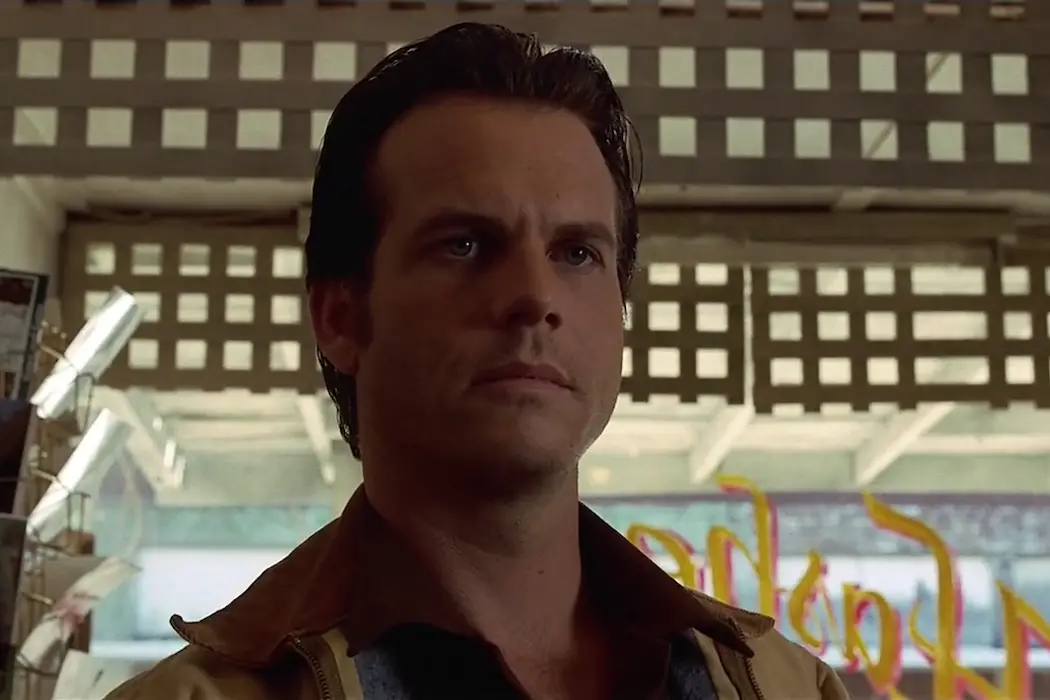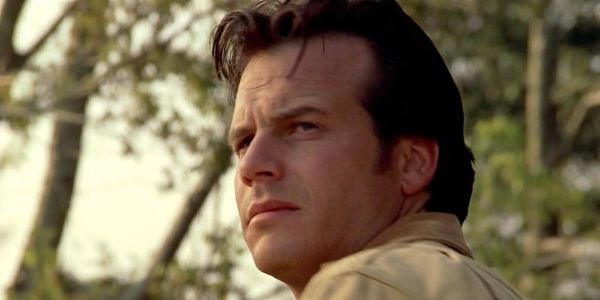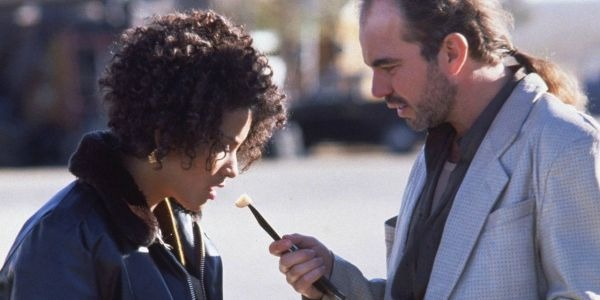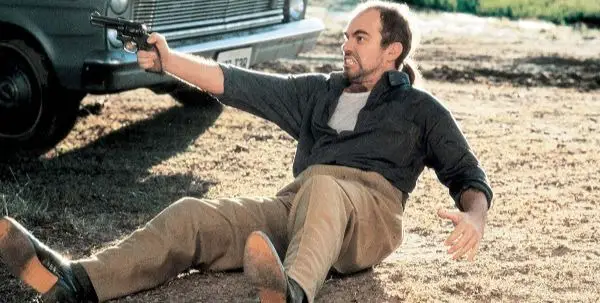ONE FALSE MOVE: Exploring Race Through A Neo-Noir Filter

lover of film
The 90s were the time to be alive for avid fans of film noir or crime fiction in general. I myself, unfortunately, did not have the pleasure of living through the 90s, but whenever I contemplate the sheer amount of modern classics the decade produced, my eyes turn green with envy at those fortunate enough to have experienced it: Heat, Pulp Fiction, Reservoir Dogs, Se7en, Goodfellas, The Usual Suspects, etc.
Yes, it’s very true that decades prior also flaunt an impressive repertoire of noir and crime films, but what the 90s entailed was an integration of a variety of influences into the genre. And consequently, in this maelstrom of creativity, many great films were outshined by more popular and/or accessible ones, thus fading into the realm of obscurity. Carl Franklin’s 1992 neo-noir masterpiece One False Move is one of these forgotten gems.

Without revealing too much of the goodness resting behind this celluloid veil, One False Move involves a massacre in L.A., stolen cocaine, and a trio of murderers fleeing down south. This simple but effective premise results in a bombastic explosion of betrayal, love, and violence, all centering around Chief Dale “Hurricane” Dixon (Bill Paxton), a small-time Arkansas sheriff who doesn’t quite know what he’s dealing with. The film is well shot and paced, accompanied by an equally solid script guaranteed to leave the viewer satisfied. But, as is the tradition with the noir genre as a whole, the criminal aspect of the film is used as a catalyst to explore much deeper and introspective themes.
Hurricane
The first rule (or at least somewhere in the top ten) of writing a good character is that said character must have flaws. And these flaws must actively work against the character’s mission, haunting them like an albatross. With Hurricane, his most polarizing flaw is that he’s overly optimistic and impetuous, hence his nickname. He’s got his head way too far up in the clouds and struggles to face reality. The reality this time, being a matter of life and death.

The film hits all the right notes by bringing his mission and flaw in confrontation with one another, ultimately changing him for better or for worse. However, therein lies another flaw in Hurricane. One that’s not entirely personal, but is more representative of the environment he was brought up in. One that goes further, and is indicative of a greater flaw in the American consciousness as a whole just as much as it is in him.
When we’re introduced to Chief Dale “Hurricane” Dixon, although imperfect, he’s a very likable character. He’s a righteous, kind-hearted, well-meaning family man. And we learn throughout the film his love for his community and his community’s love of him, then we have lunch with him. He’s treating his two visiting big-time L.A. detectives, one black and one white (that’s very important), to a meal at his house. We try to keep up with what he’s saying as he rambles on and on, but then we stop in our tracks at what slips from his tongue. The N-Word. Ah yes, the flaw of casual racism.
More Than Just A Flaw
Now, casual racism in a protagonist wasn’t anything new in cinema at the film’s release. Look no further than The French Connection, or many films of the same type from other eras. However, the protagonists in the majority of those movies aren’t supposed to necessarily be likable. We do sympathize with them and their motives, but likability isn’t a paramount attribute. These characters aren’t so much of a dreamt up creation as they are a reflection of the culture at the time, which was much more racially insensitive than today.
Although Hurricane is for the most part likable, he still represents a sect of American society that’s hardly visited. One where racism is engrained into a whole culture’s DNA, in this case, that of a small Arkansas town. And although some inhabitants may have absolutely no hate in their hearts, they adopt this flawed and intrinsically wrong perspective on life, because that’s the way they grew up. And Hurricane is the manifestation of this type of culture.
It would be easy to create melodramatic and hyperbolized characters that exemplify everything that’s cruel, unjust, and abhorrent about racism. But One False Move goes further: it challenges the viewer by offering a drastically different face to racism than what we’ve usually seen in contemporary cinema. A smiling and welcoming face. The film is saying through this that discrimination is not just localized to the decrepit godless environments that we’re usually accustomed to; it also germinates deep within the shadows of the warmest and most welcoming parts of this nation.
Beneath The Green Grass
The town in which most of the film takes place, the town that Hurricane looks over, is a reflection of the model American town. A tight-knit community with southern hospitality bursting from the seams. He’s never even had to use his gun. But beneath the green grass and jovial facades churns an atavistic disease that has metastasized to the very essences of the people, who in turn remain oblivious to it. And when it does show, they attribute it to a mere, insignificant slip of the tongue, never truly confronting it, until it comes knocking on their door.

The criminal aspect of One False Move, when distilled down to its core, is really just a harbinger of change. Galvanized by the reality at hand, Hurricane is forced to look inside and reassess who he truly is. And with the aid of a character back from the past his outlook on race itself is also deeply affected. A disillusionment arises from this experience that’s not just indicative of a change in him alone, but a critique of race in America viewed from a different lens. A critique that tells the viewer that remnants of a hateful past still plague our nation as a whole, from the nicest to the most despicable people. This provides the viewer with a glimpse into a world usually omitted from our eyes.
Conclusion: One False Move
One False Move carefully weaves its’ racial commentary within the greater tapestry of the film, adding to its brilliance. The main plot still lays prominent and although dealing with a hefty topic the film never suffers because of that. Whereas some films may have slight racial undertones, this film goes above and beyond by directly confronting racial topics that are seldom explored in cinema, let alone the genre of crime fiction. For this, One False Move should be much more revered, and I hope you’ve been incentivized to check it out.
What are your opinions on One False Move? Let us know in the comments below!
Watch One False Move
Does content like this matter to you?
Become a Member and support film journalism. Unlock access to all of Film Inquiry`s great articles. Join a community of like-minded readers who are passionate about cinema - get access to our private members Network, give back to independent filmmakers, and more.













